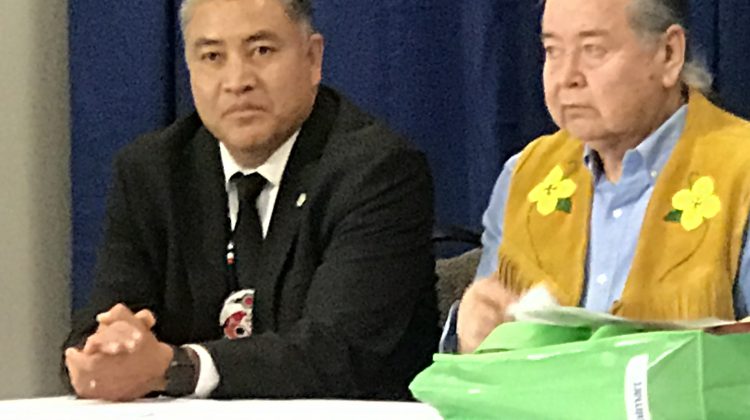BC’s Indigenous population needs to be more involved in the decision-making process, in relation to the forestry sector.
That’s according to Assembly of First Nations Regional Chief Terry Teegee who spoke today (Thursday) during the Council of Forest Industries convention, which was held virtually.
During his presentation, Teegee referenced the United Nations Declaration for the Rights of Indigenous Peoples.
“I think what UNDRIP and really this changing time needs to reflect is more involvement in all sectors and all places within the forestry sector for First Nations.”
“First Nations need to be a part of the decision-making process but also how First Nations need to be a part of the economy of British Columbia and moreover, within the forest industry.”
Teegee added much of that increased role, which could mean a larger piece of the pie when it comes to ownership.
“I think it’s good to know there is a high rate of employment in the forestry sector but I think it goes to speak to more than First Nations need to be part of the industry itself whether that’s joint ventures or complete ownership of some of the companies that are utilizing wood as their primary product.”
“It’s been long-standing of what many First Nations wanted for many decades is more involvement, which really speaks to driving our economies forward so we are a lot less dependent on government coffers or government handouts if you will.”
Coming out of what’s been a rough period for the industry, Teegee believes the sector needs to diversify in order to remain prominent in regions like the north.
“What we have to do as a society is really look at different alternative products coming out of forests and within the forest industry. So, whether that’s mass timber production or different ways of utilizing wood or getting more value out of the wood, perhaps it’s looking at the industry to mature.”
A 2019 economic impact study, released by COFI stated 5,300 Indigenous people are directly employed in the industry, which is more than any other resource sector in the province.
Something going on in the Bulkley Valley Lakes District you think people should know about?
Send us a news tip by emailing [email protected].





